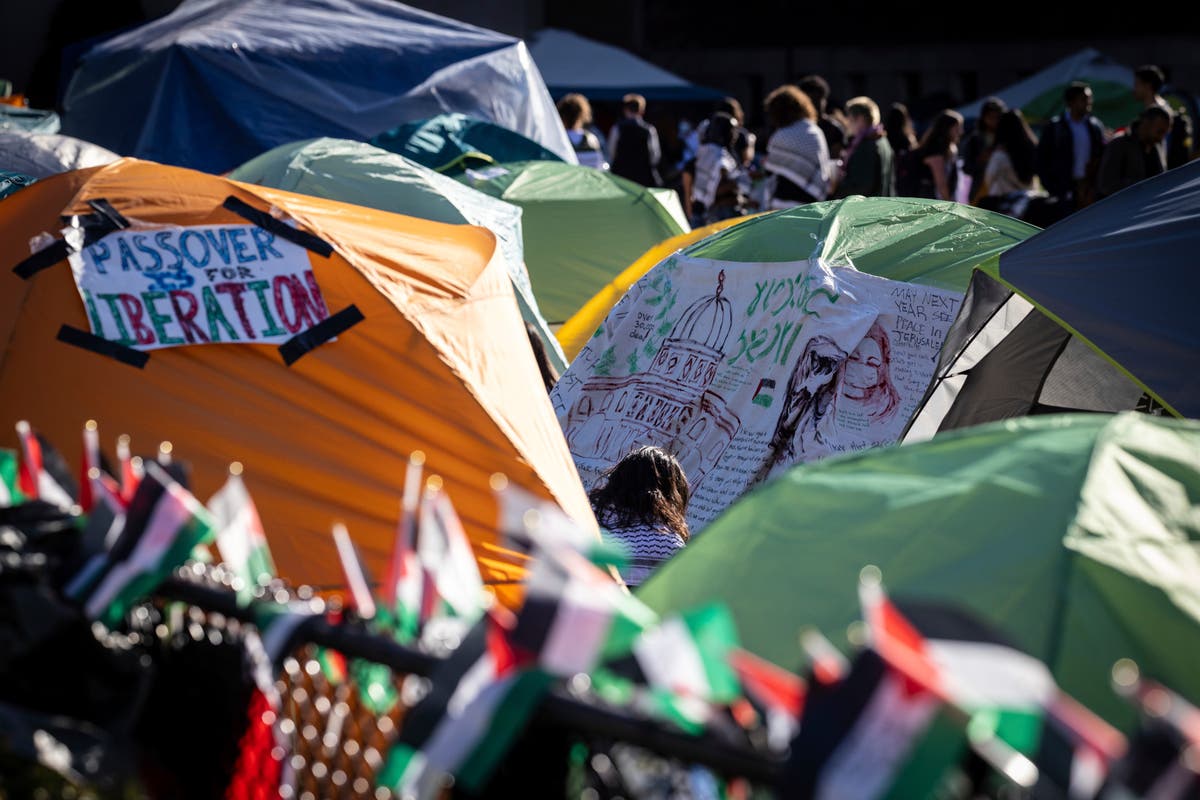Columbia University’s senate has reportedly called for an investigation into president Minouche Shafik and members of her administration, amid the ongoing protests on campus over the Israel-Gaza war.
The sentate voted on Friday to approve the resolution, and accused the administration of violating established protocols, undermining academic freedom, and breaching the due process rights of both students and professors, according to The New York Times.
Ms Shafik has faced heavy criticism for her decision to allow the New York Police Department (NYPD) to engage with the protesters on the campus, resulting in the arrest of more than 100 students.
The resolution was based partly on a damaging report by the senate executive committee, which accused Ms Shafik’s administration of engaging in “many actions and decisions that have harmed” the institution. The resolution was adopted by a vote of 62-14, with three abstentions, the Times reported.
The resolution also reportedly calls for establishing a senate task force to investigate university decision-making in furture.
A statement from Columbia University later acknowledged the vote but said that the administration and the Senate shared the “same goal of restoring calm to campus so everyone can pursue their educational activities.”
“We are committed to an ongoing dialogue and appreciate the Senate’s constructive engagement in finding a pathway forward,” the statement read.
Despite the strong passing of the resolution to investigate Ms Shafik and the administration, the Columbia senate does not have the power to remove the president. However, per the Times, some expressed on Friday that the outcome could further erode the relationship between Ms Shafik and the Columbia community.
It is the latest blow to the beleagured president, who has already undergone a grilling by Republican lawmakers in Congress about antisemitism on college campuses. Despite striking a more conciliatory tone before the House Education and Workforce Committee than the presidents of Harvard and the University of Pennsylvania, Ms Shafik was later hit by a motion of censure from Columbia’s chapter of the American Association of University Professors.
The AAUP responded angrily to Ms Shafik’s congressional testimony, accusing her of capitulating to demands from lawmakers who they said made “slanderous assaults” on faculty and students, and later submitted a motion of censure against her.
On Monday, Republicans in New York’s delegation to the US House wrote a letter urging Ms Shafik to resign, saying she had failed to provide a safe learning environment in recent days as “anarchy has engulfed the campus.”
During a visit to Columbia on Wednesday, Republican House Speaker Mike Johnson called for Shafik to resign “if she cannot bring order to this chaos.” Mr Johnson was loudly booed during his address.
The original Columbia encampments where set up in protest after students asked the school to divest financial ties to Israel over the war in Gaza. Protests in unversities in other states, including USC and the University of Texas in Austin, have espoused similar sentiments.
Just less than two weeks since the NYPD clashed with protesters at Columbia, the protests have sparked an international movement. On Friday, police in Paris worked to oust protesters who occupied the Sciences Po campus in the French capital.








